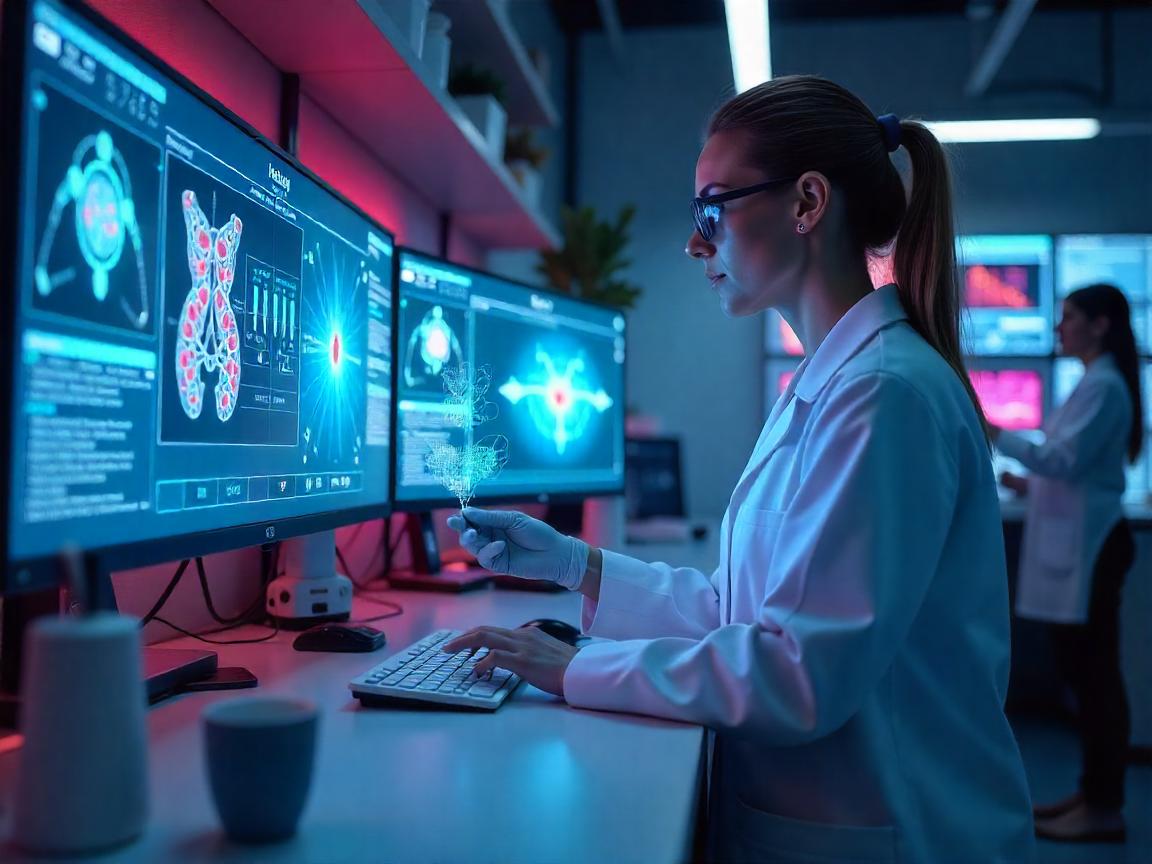
The AI Surge in Biomedical Research
Today, AI is essential in making progress in biomedical research. Integration of AI is changing the ways patient outcomes are improved and studies are carried out in healthcare. This article focuses on the numerous ways AI supports biomedical research and provides examples and comments from experts.
Early Detection and Diagnostics: AI’s Precision
AI is particularly good at helping detect cancer at an early stage. The miONCO-Dx test by Xgenera is available in the UK and, using AI, checks blood for microRNA expressions, spotting 12 common cancers with accuracy higher than 99%. Emirates Health Services also launched a breast cancer screening program in the UAE which used AI and managed to verify 98 out of every 100 cases clean, identifying 20 people with abnormalities among 150 teachers.
At Monash University in Australia, AI-based software was built to spot early signs of dementia in hospital records by noticing up to 300–400 discreet changes. Because of these advances, doctors now have an easier time identifying diseases than they did before.
Using AI to Speed Up the Search for New Drugs
With AI, finding new drugs is happening more rapidly than before. AI helped the researchers at the MIT Jameel Clinic locate Halicin, a new drug against drug-resistant bacteria, in only three days. With AI, DSP-0038 advanced from its early stages to a Phase I study in a year, much faster than what the average industry does.
Isomorphic Labs which Alphabet owns, relies on AlphaFold by DeepMind to estimate the structure of proteins and help identify targets for new drugs. They show that AI can increase the speed of making new drugs for patients.
Case Studies: Their Significance in the Real World
- The company Qure.AI, based in India, provides AI-driven tools for early diagnosis of tuberculosis and lung cancer and serves about 15 million people each year throughout many countries.
- AI in Telangana: Officials in Telangana have introduced AI into ways of screening for and detecting, oral, breast and cervical cancers in select districts.
- In the UK, Harrogate and District NHS Foundation Trust used AI software to review chest X-rays speedily and made it more accurate to locate lung cancer.
In multiple aspects of healthcare, AI can be seen to significantly improve both testing and service availability.
Opinions from Experts: AI and Its Role in Healthcare
Dr. Amina Al Jasmi, Director of Radiology at Emirates Health Services, believes AI-powered technology helps schools detect breast cancer in its initial stages.
Using AI, Professor Velandai Srikanth explains, allows the early detection of dementia in people who still have not been diagnosed, helping them get useful treatment.
These show that healthcare professionals today agree on the important role AI can play in both the lab and the clinic.
Conclusion: Embracing AI’s Potential
By applying AI to biomedical research, the field of healthcare is moving in an entirely different direction. AI promises to revolutionize the way people are cared for and research is carried out. For AI to benefit the world’s health, it will be vital for technologists, researchers and healthcare specialists to join forces.